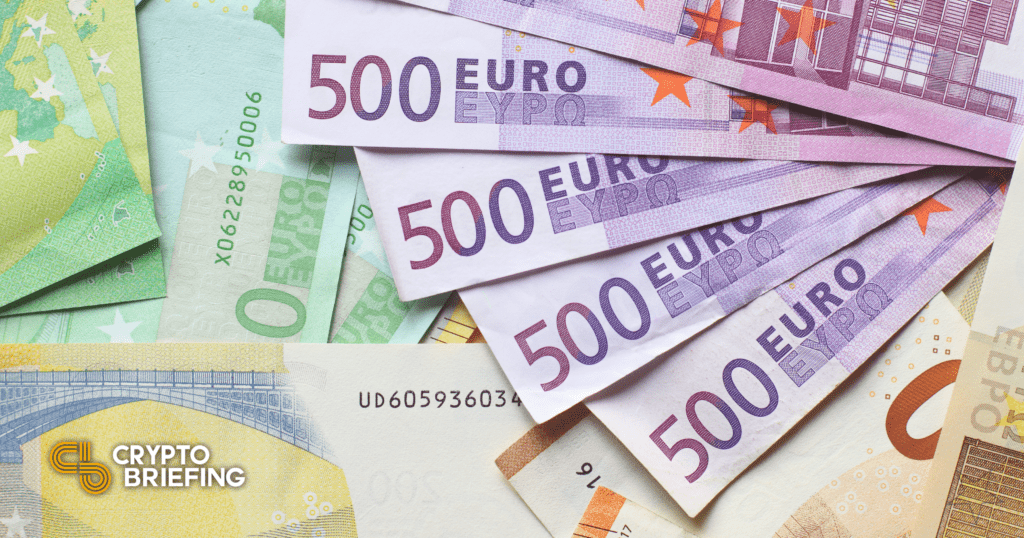
Shutterstock photo by Tupungato
Ripple Partners With Digital Euro Think Tank
The firm behind XRP is exchanging knowledge with the Digital Euro Association.
Ripple has joined the Digital Euro Association (DEA) to provide input on the design of central bank digital currencies (CBDCs).
Partnership Will Involve Knowledge Exchange
Digital Euro Association Chairman Jonas Gross suggested that the partnership will largely involve the exchange of knowledge and around digital currencies.
Gross stated that Ripple will help “extend the technological expertise of the DEA community,” noting that CBDC or government stablecoin projects increasingly need advice on technological design as they advance beyond the initial research stage.
Ripple VP of Central Bank Engagements James Wallis said that Ripple has “invested significantly in the CBDC world” and that it has 40 members working on CBDCs around the world. He added that the partnership will “further develop [Ripple’s] work in the CBDC area.”
Today’s news appears to be unrelated to reports on Thursday that the European Commission could establish a framework for a digital Euro by late 2023. The DEA is a think tank, while the European Commission is an executive branch of the EU government.
As such, Ripple and the DEA’s efforts will probably not lead directly to the creation of a digital Euro, unlike the Commission’s efforts. Still, the partnership could influence the design of an eventual CBDC if the DEA think tank engages with policymakers.
Ripple Has Been Involved With CBDCs Before
CBDCs are digital assets issued on a centrally operated ledger and pegged to the price of a country’s main currency.
Though Ripple’s native XRP token is not a CBDC, its blockchain is designed for institutions and enterprises, making it an attractive option for governments looking to issue a CBDC. Bhutan and Palau have both chosen to work with Ripple on their CBDC efforts.
Ripple also became involved with the Digital Pound Foundation, an NGO researching a CBDC for the U.K., in October 2021.
In other news, Ripple’s lawsuit with the U.S. SEC continued this week. The SEC initially alleged that Ripple’s token sales constituted unregistered securities sales in December 2020.
Disclosure: At the time of writing, the author of this piece owned BTC, ETH, and other cryptocurrencies.
